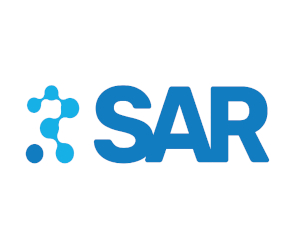Niveles de interferón tipo I en pacientes con lupus eritematoso sistémico
Resumen
Introducción: el interferón (IFN) tipo I es una citoquina que juega un rol fundamental en lapatogenia del Lupus Eritematoso Sistémico (LES). Diferentes niveles de esta citoquina podrían explicar la heterogeneidad de esta patología y ser útil para evaluar la actividad de la misma. Objetivos: determinar los niveles de IFN tipo I sérico en pacientes con LES y evaluar su utilidad como biomarcador de actividad. Material y Métodos: 16 pacientes con LES (ACR 1997) y 16 controles. Métodos: Actividad de la enfermedad (SLEDAI-2K), daño orgánico (SLICC), IFN tipo I (HEK-Blue-IFNα/β), anticuerpos anti-DNAdc (Inmunofluorescencia Indirecta), anticuerpos anti-ENA (ELISA), C3-C4 (Inmunoturbidimetría). Estadística: InfoStat/Instat/MedCalc. Valores de p<0,05 fueron considerados estadísticamente significativos. Resultados: se observó un aumento de la concentración de IFN en el grupo LES con respecto al control (p<0,05). Los pacientes con valores de IFN superiores al punto de corte, se asociaron con la presencia de anticuerpos anti-DNAdc (OR:13,33;p<0,05). Pacientes con hipocomplementemia y aquellos con puntaje de SLEDAI-2K mayor a 8 presentaron mayores niveles de IFN comparados con pacientes con complemento normal y menor puntaje de índice, respectivamente (p<0,05). Conclusiones: estos resultados sugieren la importancia que podría tener la determinación de IFN tipo I para el monitoreo de la actividad del LES.Citas
I. Kaul A, Gordon C, Crow MK, Touma Z, Urowitz MB, van Vollenhoven R, et al. Systemic lupus erythematosus. Nat Rev Dis Primer. 2016; 2(1):16039.
II. Goulielmos GN, Zervou MI, Vazgiourakis VM, Ghodke-Puranik Y, Garyfallos A, Niewold TB. The genetics and molecular pathogenesis of systemic lupus erythematosus (SLE) in populations of different ancestry. Gene Rev. 2018; 668:59-72.
III. Lewis MJ, Jawad AS. The effect of ethnicity and genetic ancestry on the epidemiology, clinical features and outcome of systemic lupus erythematosus. Rheumatology. 2016; 56(suppl_1):i67-i77.
IV. Bengtsson AA, Rönnblom L. Role of interferons in SLE. Best Pract Res Clin Rheumatol. 2017; 31(3):415-28.
V. Mary K. Crow. Type I Interferon in the Pathogenesis of Lupus. J Immunol. 2014;192(12):5459-5468.
VI. Hagberg N, Rönnblom L. Systemic Lupus Erythematosus - A Disease with A Dysregulated Type I Interferon System. Scand J Immunol. 2015; 82(3):199-207.
VII. Chasset F, Arnaud L. Targeting interferons and their pathways in systemic lupus erythematosus. Autoimmun Rev. 2018; 17 (1):44-52.
VIII. Hall JC, Rosen A. Type I interferons: crucial participants in disease amplification in autoimmunity. Nat Rev Rheumatol. 2010; 6(1):40-9.
IX. Rönnblom L. The importance of the type I interferon system in autoimmunity. Clin Exp Rheumatol. 2016; 34(4 Suppl 98):21-4.
X. Tsokos GC, Lo MS, Reis PC, Sullivan KE. New insights into the immunopathogenesis of systemic lupus erythematosus. Nat Rev Rheumatol. 2016;12 (12):716-30.
XI. Psarras A, Emery P, Vital EM. Type I interferon–mediated autoimmune diseases: pathogenesis, diagnosis and targeted therapy. Rheumatology. 2017; kew431.
XII. Weckerle CE, Franek BS, Kelly JA, Kumabe M, Mikolaitis RA, Green SL, et al. Network Analysis of Associations between Serum Interferon Alpha Activity, Autoantibodies, and Clinical Features in Systemic Lupus Erythematosus. Arthritis Rheum. 2011; 63(4):44-53.
XIII. Eloranta ML, Rönnblom L. Cause and consequences of the activated type I interferon system in SLE. J Mol Med. 2016; 94:1103–1110.
XIV. Wampler Muskardin, Niewold TB. Type I interferon in rheumatic diseases. Nat Rev Rheumatol. 2018; 14(4):214-228.
XV. American College of Rheumatology [Internet]. 1997. Disponible en: https://www.rheumatology.org/Portals/0/Files/1997%20Update%20of%201982%20Revised.pdf
XVI. Gladman DD, Ibanez D, Urowitz MB. Systemic lupus erythematosus disease activity index 2000. J Rheumatol. 2002; 29(2):288–91
XVII. Sociedad Española de Reumatología [Internet]. 2016. Disponible en: https://www.ser.es/wp-content/uploads/2016/04/CUESTIONARIO_SLICC.pdf
XVIII. Ruchakorn N, Ngamjanyaporn P, Suangtamai T, Kafaksom T, Polpanumas C, Petpisit V, et al.Performance of cytokine models in predicting SLE activity. Arthritis Research & Therapy. 2019; 21:287.
XIX. Landolt-Marticorena C, Bonventi G, Lubovich A, Ferguson C, Unnithan T, Su J, et al. Lack of association between the interferon-alpha signature and longitudinal changes in disease activity in systemic lupus erythematosus. Ann Rheum Dis. 2009; 68(9):1440e6.
XX. Weckerle C, Franek S, Kelly J, Kumabe M, Mikolaitis RA, Green SL, et al. Network Analysis of Associations between Serum Interferon Alpha Activity, Autoantibodies, and Clinical Features in Systemic Lupus Erythematosus. Arthritis Rheum. 2011; 63(4): 1044–1053.
XXI. Mathian A, Mouries-Martin S, Dorgham K, Devilliers H, Barnabei L, Salah EB, et al. Moni-toring Disease Activity in Systemic Lupus Erythematosus With Single-Molecule Array Digi-tal Enzyme-Linked Immunosorbent Assay Quantification of Serum Interferon-α. Arthritis & Rheumatol. 2019; 71(5):756–765.
XXII. Kirou KA, Gkrouzman E. Anti-interferon alpha treatment in SLE. Clin Immunol. 2013; 148(3):303-12.
XXIII. Mathian A, Hie M, Cohen-Aubart F, Amoura Z, et al. Targeting Interferons in Systemic Lupus Erythematosus: Current and Future Prospects. Drugs. 2015; 75(8):835-46.
XXIV. Oon S, Wilson NJ, Wicks I. Targeted therapeutics in SLE: emerging strategies to modulate the interferon pathway. Clin Transl Immunol. 2016; 5(5):e79.
XXV. Samotij D and Reich A. Biologics in the Treatment of Lupus Erythematosus: A Critical Literature Review. BioMed Res Int. 2019; 1-17.
XXVI. Onuora S. Positive results for anifrolumab in phase III SLE trial. Nat Rev Rheumatol. 2020; 16(3):125.
XXVII. Morand EF, Furie R, Tanaka Y, Bruce IN, Askanase AD, Richez C, et al. Trial of Anifrolumab in Active Systemic Lupus Erythematosus. N Engl J Med. 2020; 382(3):211-21.
XXVIII. Riggs JM, Hanna RN, Rajan B, Zerrouki K, Karnell JL, Sagar D, et al. Characterisation of anifrolumab, a fully human anti-interferon receptor antagonist antibody for the treatment of systemic lupus erythematosus. Lupus Sci Med. 2018; 5(1):e000261.
XXIX. Anderson E, Furie R. Anifrolumab in systemic lupus erythematosus: current knowledge and future considerations. Rev Immunotherapy. 2020; 12(5):275-286.
XXX. Davis LS, Reimold AM. Research and therapeutics-traditional and emerging therapies in systemic lupus erythematosus. Rheumatology. 2017;56 (suppl_1):i100-13.
Derechos de autor 2021 A nombre de los autores. Derechos de reproducción: Sociedad Argentina de Reumatología

Esta obra está bajo licencia internacional Creative Commons Reconocimiento-NoComercial-SinObrasDerivadas 4.0.






